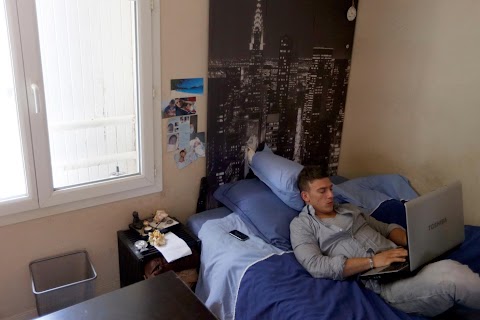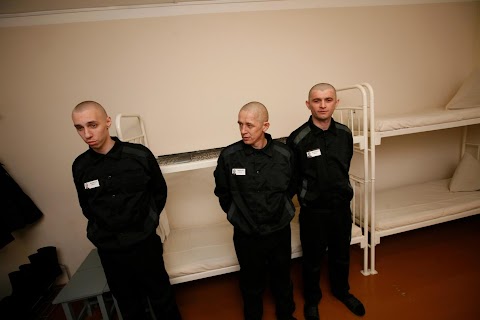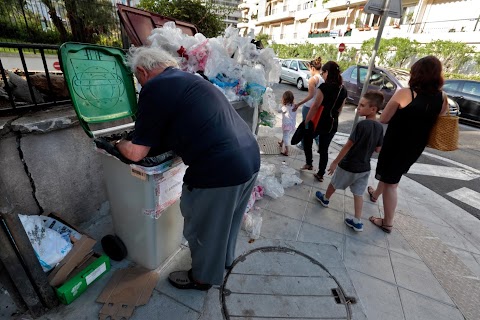
New country, new jobs, new lives
When Maria Jose Marin and her twin sister Maria Teresa began nursing school in their native Spain several years ago, the chances of finding work seemed good. But as the recession took hold, opportunities evaporated - now there are over 18,000 unemployed nurses in Spain. Fleeing this dismal market, the 23-year-old twins seized the chance when a nurse recruiting firm offered jobs caring for the elderly to those willing to learn Dutch and move to the Netherlands.


Story
Jobless Spanish nurses jump at Dutch opportunities
Nurse recruiting firm Roca-BHR drew more than 800 applicants in Spain last year when it offered guaranteed jobs in the Netherlands caring for the elderly to those who were willing to take an intensive course in Dutch.
Of the 20 young nurses accepted to the programme, 11 completed the seven months of training and tests in the southern city of Seville and flew to The Hague, where they start work in July.
With full nursing degrees, they are all over-qualified for their nursing aide positions. But given that more than 18,000 nurses are out of work in Spain, the compromise is worth it.
Hiring is frozen in Spain's national health system and almost at a standstill in private hospitals and clinics thanks to drastic spending cuts to trim the public deficit. Some 1,000 trained nurses have never found work in their field, according to Spanish nursing union Satse.
"It's very, very difficult to find a job in Spain," said Maria Angeles Luque, 25, one of the group of 10 women and one man who will be working in the Netherlands.
Maria Jose Marin, who joined the training group with her twin sister Maria Teresa, said that when they began nursing school several years ago, most graduates found jobs the summer after they graduated.
"But the situation got worse and worse. I never imagined things would end up like this," the 23-year-old told Reuters. The two have been looking for work since they graduated in 2011.
A Reuters photographer accompanied the twins for a week as they traded the room they shared in their parents' home for a dorm in a temporary residence in The Hague. From a family of eight siblings in the town of Paradas, 50 km (30 miles) outside Seville, it was their first visit to the Netherlands.
PLENTY IN SPAIN, DEARTH IN NETHERLANDS
Just five years ago, there was full employment for Spanish nurses and new graduates immediately stepped in to jobs covering summer holidays for established nurses, said a spokesman at Satse.
Now, when a nurse goes on holiday, the other nurses in the hospital do double shifts to cover, he said. Satse recently identified 4,000 nursing jobs available around Europe and published a "practical guide" to help members find work abroad.
But while there is a nursing oversupply in Spain, the Netherlands has the opposite problem, especially when it comes to filling jobs for less-qualified care professionals known as nursing aides or health care assistants, such as those that often work with the elderly.
This is despite the fact that the Netherlands has more than 10 nurses per 1,000 people, compared to just under five per 1,000 in Spain, according to Eurostat data from 2008.
When caregiving personnel such as nursing aides are included, the Netherlands' ratio still doubles Spain, with 21.4 per 1,000 people, compared with 10 per 1,000.
"It's very difficult in the big cities in Holland to find enough nurses with the right level of qualification," said Theo Stoffels, a manager at private healthcare group Respect Zorggroep Scheveningen.
"Today when nurses leave school, they prefer to go to work in a hospital. It's more interesting, more exciting, whereas care of elderly people is a different kind of work."
Stoffels' company will hire the Spanish nurses trained by Roca-BHR to work at hospices and nursing homes that it operates in and around Scheveningen, a seaside resort district of The Hague.
Olof Craenen, Spain director for Roca-BHR, has recruited nurses in Latvia, Poland and Bulgaria to work in the Netherlands for companies that pay his company a fee to give them language training.
The nurses that travelled on June 4 from Seville are in the first Roca-BHR group from Spain.
Maria Jose and her sister spent three hours a day in Dutch class in Seville, and up to nine additional hours practicing their spoken Dutch with a computer programme. They did not pay for the courses, but had to commit full-time to the programme and not work elsewhere, and be prepared to pay for housing in the Netherlands.
Craenen said his training focused on language and culture and that he selected nurses whose families were supportive of their move abroad, to reduce the likelihood they would abandon their new jobs.
After two years working in the Netherlands the nurses will be eligible for higher-paying professional nursing jobs, he said.
In an email exchange from The Hague, Maria Teresa said the most frustrating things about the first few weeks in her new country has been struggling to make herself understood and getting used to an early-to-bed-early-to-rise schedule.
Her Dutch colleagues have made all the difference, always willing to help out and answer questions, she said.
"They all encourage me and tell me 'maakt niet uit, komt goed,' which means 'don't worry, everything will be fine.' Their attitude has surprised me and that has cheered me up."




































